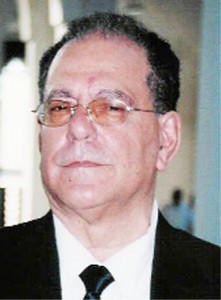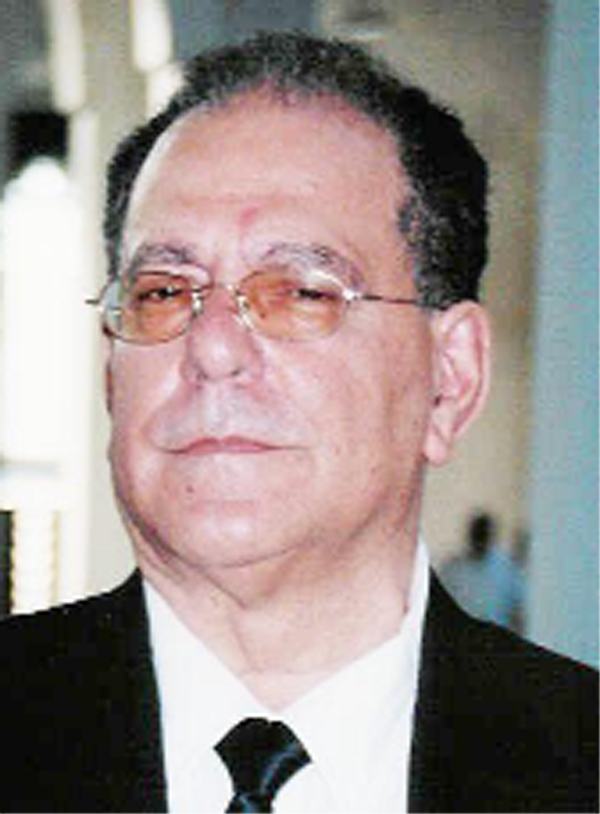Major expenditure planned for industry this year
Sugar was a major focus during the budget debate in Parliament and Minister of Agriculture Robert Persaud said that the industry will be spending close to $37B as “sugar is too important to fail”.

He told the National Assembly in a lengthy presentation during the 2009 Budget debate, that agriculture has a key role to play in strengthening and solidifying the economy to withstand some of the shocks and global turmoil. He asserted that the Budget contains a “pervasive presence” of activities and interventions to ensure that more opportunities are created and better services are provided for people.
Persaud said that the global economic slowdown will hurt remittances and will impact on export earnings and the sector should be geared to take up some of the slack, and exports increased so that the country can earn more and fill some of the shortfalls. Noting that many international agencies have projected an increase in food prices, he asserted that it is imperative that Guyana look at the opportunities. According to Persaud, the government’s strategy is to expand and diversify agriculture and the “novelty” of the Budget is that it is preparing and adapting the country for the uncertain and complex global socio-economic and climatic conditions.
He declared that the promise of the sector is strong and last year saw 60 new investments within the sector with 49 new investments about to be approved. The Agriculture Minister said that an Inter-American Development Bank project, which will develop institutional and other support for the development of a bio-fuel sector is about to take off while Trinidad and Guyana have set up a mechanism with representatives of the island’s government having been in the country recently to finalize a protocol, whereby hurdles such as phyto-sanitary requirements are cleared. He disclosed that there are three investors from Trinidad currently working with farmers and referring to PNCR-1G Parliamentarian, Winston Murray’s statements about the status of the discussions said that that has proceeded well and realized tangible results. He said further that production and productivity in the sector has increased significantly, particularly since the launching of the Grow More food campaign.

However, PNCR-1G MP, Anthony Vieira, who spoke after Persaud, said that there was “no evidence” that exports grew and declared that the Budget was a “very poor” one. In this light, he stated that local debt grew from less than $20B to $80B.
Sugar
Meantime, the performance in the sugar sub-sector was “mixed” due to natural and man-made factors and the non-commissioning of the new Skeldon Sugar factory meant that 60,000 tons of sugar cane could not be harvested which accounted for over 5,000 tonnes of sugar not being produced, Persaud stated. He added that the Guyana Sugar Corporation (GuySuCo) has filed for liquidated damages amounting to over US$5M. The Minister pointed out that the new factory is currently being prepared for sugar production for the current crop and said that private cane farmers are moving forward in expanding acreage, and at the same time GuySuCo is moving apace to ensure that the 1.2 million tonnes of sugarcane required for the factory to produce close to 110,000 tonnes of sugar by 2012, is available. He had earlier noted that GuySuCo’s production has been in decline since 2005.
Further, Persaud said; since mid last year the factory has been supplying 4.5MW of power and it has the capacity to supply 8MW of power “at this point in time but because of lines restriction that cannot be done”. He noted that the production of diesel power is an integral part of the project when bagasse is not available. “So the production of power from the diesel plant is consistent with the plan”, he declared.
Vieira, however, in his presentation, asserted that the Skeldon Factory has not produced 1KW of electricity so far and he declared that the Skeldon project has been a “disaster” for the nation. He asserted that other estates are being deprived of money to keep them competitive to fuel the expansion at Skeldon and last year was the lowest production since 1991 with all the estates performing badly. He stated that no one knows where the cane for the Skeldon factory is going to come from at this point in time and declared that “it just cannot be done”.
Vieira outlined several problems, which he blamed for the “failure” of the Skeldon Project including that the Corporation’s Board in 1998 wrongly assumed that the EU Sugar Protocol would never be reviewed and also the wage bill could not be afforded by GuySuCo. He pointed out that the Corporation was forced to reduce its workforce by 10,000 and this created the labour shortage in the industry at present.
The MP stated that the wage bill keeps rising drastically while the price for sugar keeps falling and he said that 63% of the Corporation’s total expenditure is on wages. He declared that there was too much political interference in GuySuCo. He said that government has received $8B in adjustment funds from the European Union (EU) to date as a result of the EU sugar reforms and his information is that government would receive $33B in all.
Meantime, Persaud had noted that the contract for the construction of the US$12M packaging plant at Enmore is soon to be signed and construction will hopefully commence in the second half of this year. He further noted that the EU sugar price cuts will have to be faced and Guyana stands to lose $8B per annum as a result of the cuts. “Sugar is too important to fail”, he declared adding that this year the industry will be spending close to $37B.
He stated too that after a year and a half of negotiations with five prospective buyers for bulk sugar into Europe, a contract was finalized for the sale of a minimum quantity of 185,000 tonnes per year with new terms and conditions consistent with the partnership agreement. He said that the Guyana government and the EU continued to work closely in 2008 in delivering the Guyana National Action Plan for sugar. “Indeed, the sugar industry met over 90% of the indicators for the delivery of the sugar variable tranche before the deadline date of 31 March this year”, he stated.
A three-year financing agreement was signed in 2007.
Further, Persaud said, results are being seen from the Agriculture Export and Diversification Project, which is a five-year project and this is complemented by that US$6.9M Rural Enterprise and Agricultural Development programme. The non-traditional sector saw growth last year, he said noting that farmers do not have the ideal conditions. “They have you”, heckled members of the opposition. Persaud acknowledged that while the Ministry is not “doing all we should but we are doing something.”
Hope canal
The Hope conservancy relief canal, the Agriculture Minister said, matters a lot to the economy. He stated that technical assessments of the East Demerara Water Conservancy (EDWC) and its flow system by both local and international experts indicate that the Conservancy requires an additional outlet in order to improve its safety standards in responding to extreme storm events.
He said that hydraulic modeling of the EDWC was carried out in 2004 and further updated in 2005 and provided analytical output from which recommendations were derived in improving the flow and discharge system. A final report in 2005, he said, recommended that a new outlet be constructed. According to Persaud, rainfall patterns and water level recordings have indicated that rainfall water accumulation along the North/East section of the conservancy takes a much longer period to discharge through the eastern relief structures, thus the need for a new outlet to the Atlantic. Works in this regard were recommended and Hope was in the centre of the two extremes recommended by the experts. He declared that the project was an important one and matters a lot to the economy.
Vieira said that before the House passes the provision for the Hope canal, a bipartisan committee should be formed to discuss the repercussions on the Hope community. He stated too that the Maduni and Lama Sluices used to work before and accused the Government of peddling “nancy stories” about climate change causing the problems. He said that the rainfall patterns were “normal” for the country and cast doubt on rainfall figures supplied by the Ministry.

